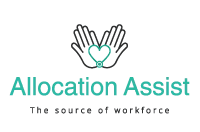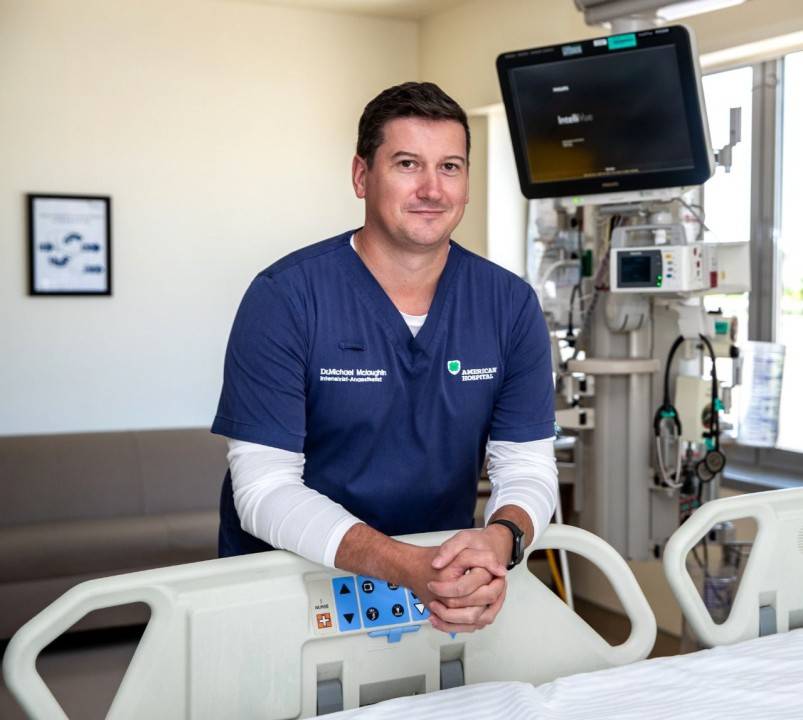donationDr Michael McLaughlin is a Consultant Intensivist & Anaesthesiologist from Scotland, UK. He completed his specialist training in Glasgow where he then worked as an NHS Consultant in Anaesthesia and Intensive Care Medicine for five years. Dr Michael relocated to American Hospital Dubai in January 2021, where he is now the Director of Intensive Care. Building on his training and experience from the UK. Dr. Michael is contributing to the development and expansion of the organ donation programme in the UAE.
At Allocation Assist, we like to keep in touch with doctors who we help to relocate, find out how they are doing, and follow their achievements. It was so interesting to hear Dr. Michael’s experiences since relocating to the UAE.
Dr. Michael, thank you so much for making the time for this interview. Could you please tell us about your training and experience, and what brought you to Dubai?
Before coming to Dubai, I had lived all my life in Scotland. During my time as an anesthesia and intensive care medicine consultant, I took on various leadership roles and was involved in teaching and the organ donation programme. It was a rewarding and fulfilling post that I enjoyed. When the COVID-19 pandemic arrived, with the associated challenges at the time, I started to consider making a change for both professional and lifestyle reasons.
My sister-in-law was already working in Dubai as a teacher, and she kept telling us how much she liked living and working here. So, we started to think about making the move. One grey, cold day in Glasgow, I contacted Allocation Assist to find out more about opportunities in Dubai.
The licensing and recruitment process happened faster than I expected. I was very pleased to be offered a consultant post at American Hospital, as it is one of the highest-rated hospitals in the UAE. I arrived with my family in January 2021, which was just before the second wave of the COVID-19 pandemic.
What was your experience working as an ICU consultant in Dubai during the COVID-19 pandemic?
It was a challenging time in Dubai, as in the rest of the world. In the UAE, the National Crisis and Emergency Management Authority (NCEMA) mounted a swift and efficient response to the emerging pandemic, which involved government and private hospitals working together. Certain hospitals were designated to accept patients diagnosed with COVID, and American Hospital was one of the few private hospitals in Dubai taking COVID patients.
American Hospital’s ICU is extremely well equipped, so we were able to manage very challenging cases. The hospital has expanded and increased the number of specialist consultants, including for intensive care. Here in Dubai, we used the same international, evidence-based protocols for the management of COVID patients as in the UK. It was hard for myself and the rest of the ICU team, but we were able to provide optimal treatment and continuity of care for our patients.
American Hospital has demonstrated some of the best COVID outcomes, both in the UAE and internationally. This has been thanks to having such a well-equipped ICU and highly skilled and experienced doctors and nurses. We now have 5 ICU consultants skilled in various intensive care subspecialties, such as neuro-, cardiac-, trauma-, and paediatric intensive care.
Can you tell us about the organ donation programme in the UAE?
The organ donation programme in the UAE only started in 2017 but has made great strides in a short time. Federal Law No. 5, allowing transplantation of human organs and tissues after death, was enacted in the UAE in 2016. In 2017, there were 11 organs donated by 3 deceased donors. This has increased to 203 organs donated in 2022, which equates to 5.4 per million of the population. Since the start of the programme, 460 organs have been donated from deceased donors of 20 different nationalities, with recipients being from 30 different nationalities.
The numbers are continually increasing, and the UAE is on course to become the leading country in the region for donation rates. The UAE is establishing itself as a regional hub and centre of excellence for organ donation. The Ministry of Health and Prevention has set up the “Hayat” platform, which means “life” in Arabic. This includes a website and smart app where individuals can register their wish to become an organ donor after their death. This opt-in scheme has received some publicity, but more awareness is needed.
The number of organs required for potential transplant patients, especially kidneys for those with renal failure, remains far higher than the number of donated organs, both in the UAE and worldwide.
What role does American Hospital play in the organ donation programme?
The excellent ICU here at American Hospital Dubai means that we are ideally placed to be at the forefront of the organ donation programme. We have robust policies and procedures, and all staff involved have undergone extensive training.
Organ transplantation is not currently done at American Hospital, but this is an aspiration as the number of organ donations continues to grow. There are currently seven centres in the UAE where organ transplants are carried out. Cleveland Clinic Abu Dhabi is a multi-organ transplant centre and therefore majorly involved with organ retrieval, along with other centres.
Can you tell us about the training involved and how you are learning from programmes in other countries?
We have been learning from, and collaborating with, centres of excellence around the world. In particular, we have a partnership with the Donation and Transplant Institute (DTI), based in Barcelona, Spain. The Donation and Transplant Institute consultancy service has been invaluable in the development of our policies and procedures, aligned with best practices, and adapted to the local situation.
We have also trained with the DTI’s Advanced Transplant Procurement Management Course and use their Transplant Procurement Management Manual. Apart from the more technical aspects, training includes learning how to communicate well and have sensitive discussions with family members. Our organ donation team has also visited centres of excellence in the USA, Croatia, and other places in Europe to learn from their organ donation programmes or attend conferences.
What does the organ donation process involve?
Once an individual is identified as a potential donor, a discussion always takes place with the next of kin. These discussions are always handled carefully and sensitively, and they are never rushed. If the individual had opted into the “Hayat” scheme, we would share with the family that they expressed a desire to be an organ donor. Whether they opted in or not, we ask them to consider what their family member would have wanted. Dr.doing,
All those involved in the programme are highly trained in the informed consent process and experienced in discussing with next-of-kin. As the UAE has a large expatriate population, we sometimes have to call next-of-kin who are outside the country, which adds extra challenges. The UAE government is keen to support the families of deceased donors.
There is an extremely specific tissue typing and matching process to determine compatibility with potential recipients, as well as viability testing. Donated organs are first offered locally in the UAE, then within the Gulf Cooperation Countries (GCC) and the wider region.
Transplant patients in the UAE benefit from being in a reciprocal program for organ donation, as they also receive donated organs from other countries. In some countries, such as the UK, a letter is sent to the medical team who initiated the donation process to inform them of how donated organs were utilised and the difference made to recipients’ lives. This information can be shared with the donor’s family without identifying the donor or recipient with each other. I feel that a similar idea would be beneficial in the UAE if this could be set up in the future.
What was your experience of relocating to Dubai for both you and your family?
There was an initial period of adjustment to working in a new country and health system. As American Hospital Dubai is extremely well resourced and my colleagues are all highly qualified and skilled, this has made the process easier. Relocating in the middle of a pandemic was challenging, but I felt supported and was able to adapt fairly quickly.
Similarly, my family took some months to adapt to life in Dubai but are now really enjoying it here. We appreciate the family-friendly lifestyle and there is lots to do in our free time. My children have settled in an international school here and made friends from all over the world. It is a great place to bring up a family.




